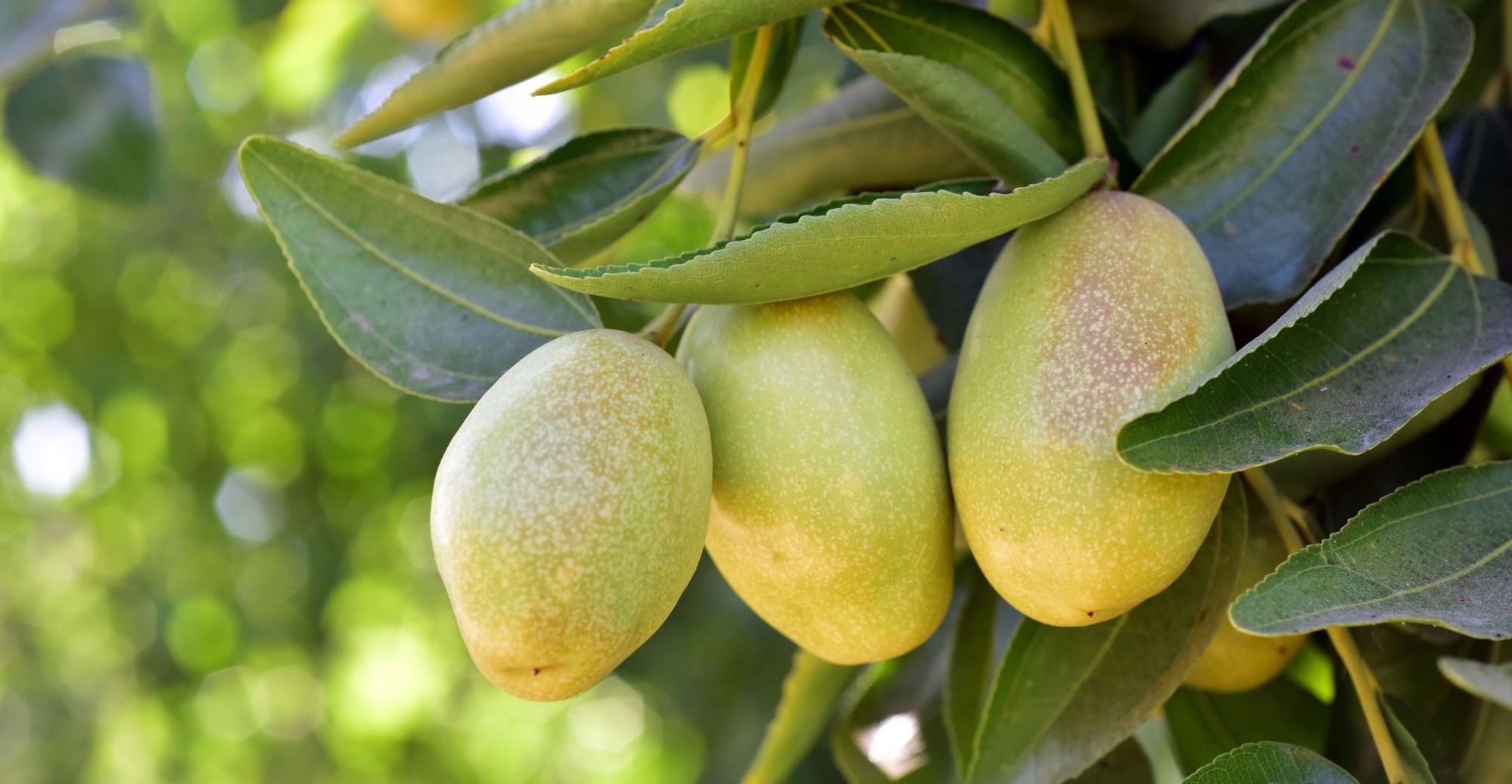.png)
Jojoba. The gold of the Incas.
Goat nut. Deer nut. Pignut. Quinine nut. Coffeeberry. Wild hazel. Gray box bush. Simmondsia chinensis. This evergreen desert shrub has many names, but you probably know it as jojoba, meaning “the gold of the Incas”. It grows in the southwest of the United States and the north of Mexico. It wasn’t actually discovered by the Incas, it was first used by the O'odham Native American tribe, for food and in oil form to help with a whole multitude of ailments. From wound healing to sore throats and kidney disorders and everything else in-between.
Over the following three hundred years, not much was done with jojoba oil. It was only in the early 1970s that the collection and processing of the seeds from these naturally growing plants marked the beginning of jojoba domestication. And now? Jojoba oil is considered among the top-ranked oils due to its wax. Its use grew by 8% in 2021, to a market value of $133 million and is predicted to rise to $253 million by 2027!
Healthier lifestyle choices
The large increase in jojoba use is also due to healthier lifestyle choices. Concern for how products are made. Growing consumer awareness of the harmful effects of chemicals used in cosmetics and personal care products. That’s why so many of the world’s biggest brands are turning to natural and organic ingredients, especially jojoba.
Cold-pressed extraction is the most common method to obtain jojoba oil, accounting for over 60% of the revenue share. This technique is ecological and simple and helps retain the original nutritive properties, as well as the flavor and aroma. Artificial intelligence and automation are further improving production processes. For example, one major player, Jojoba Desert, has automated its entire production process from the extraction of oil to the final packaging of the product to obtain contaminant free and high purity oil.
The same structure as your skin
So, what’s so special about jojoba oil? Firstly, jojoba is the only plant to store liquid wax in its seeds. This liquid wax shares the same molecular structure as the natural oils found in healthy human skin. That makes it less likely to build up on your skin and clog your pores, leading to fewer breakouts and less severe acne.
Jojoba is rich in the skin-nourishing antioxidant, vitamin E, known for delaying the signs of aging. As well as full of vitamins A and D. Vitamin A is important for the immune system, vision, reproduction and growth development. It also helps your heart, lungs and other organs to function properly. While vitamin D helps regulate the amount of calcium and phosphate in the body. These nutrients are needed to keep bones, teeth and muscles healthy

Ideal for all skin types
All the scientifically proven benefits of this natural product make it an essential ingredient in almost every skincare product. More and more often used as an emollient or moisturizer in skincare products, including face, hand, eye, and skin lightening creams. In facial formulations, it helps remove excess oil and regulate the skin's natural oil production. Making it ideal for all skin types. Add to that sunscreens and anti-tan lotions, due to its anti-inflammatory and soothing properties.
MIRON’s violet glass: beauty that is more than skin-deep
Natural products like jojoba deserve to be stored in natural packaging like MIRON, who produce the very precious and exclusive violet glass. The company is based in the Netherlands but produces and distributes its unique range of glass packaging to over 70 countries worldwide. The patented “biophotonic” glass is specially made for natural products, from cosmetics and personal care to health and nutrition. MIRON is a company that takes the long-term view on everything it does. MIRON’s violet glass is beautiful to look at, however, its beauty is more than skin-deep. It is sustainable and endlessly recyclable and reusable, made by mixing traditional and cutting-edge technology to produce a glass that increases the shelf life of natural products. In comparison to other kinds of glass, but also compared to any plastic or aluminum packaging. That is because its unique properties allow it to filter different light frequencies. Simply put, the harmful light rays, like visible light, are deflected. While the beneficial rays, ultraviolet and infrared light, are absorbed, so that natural ingredients don’t lose their potency, aroma, color and texture. You could say that MIRON’s violet glass is worth its weight in gold.